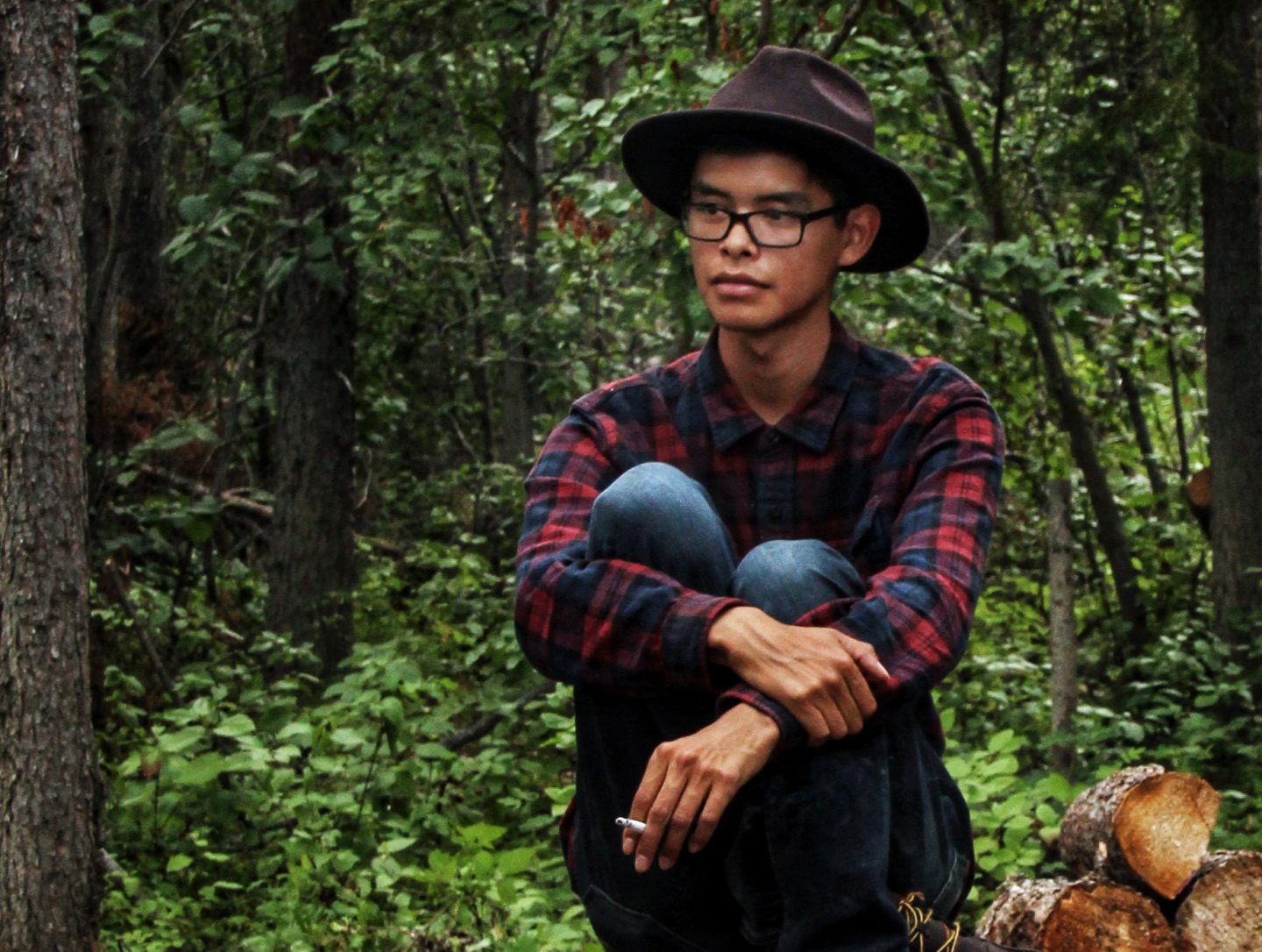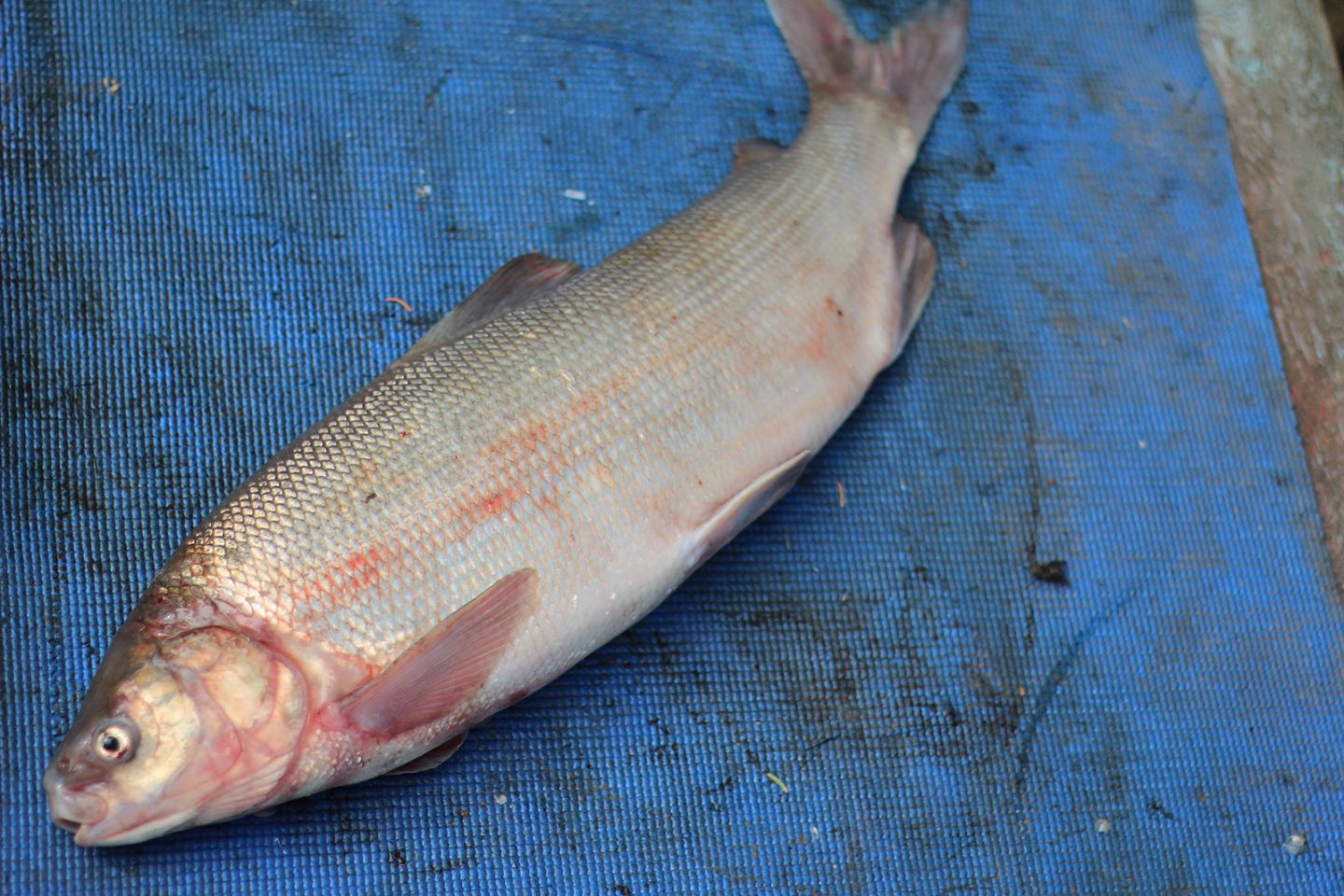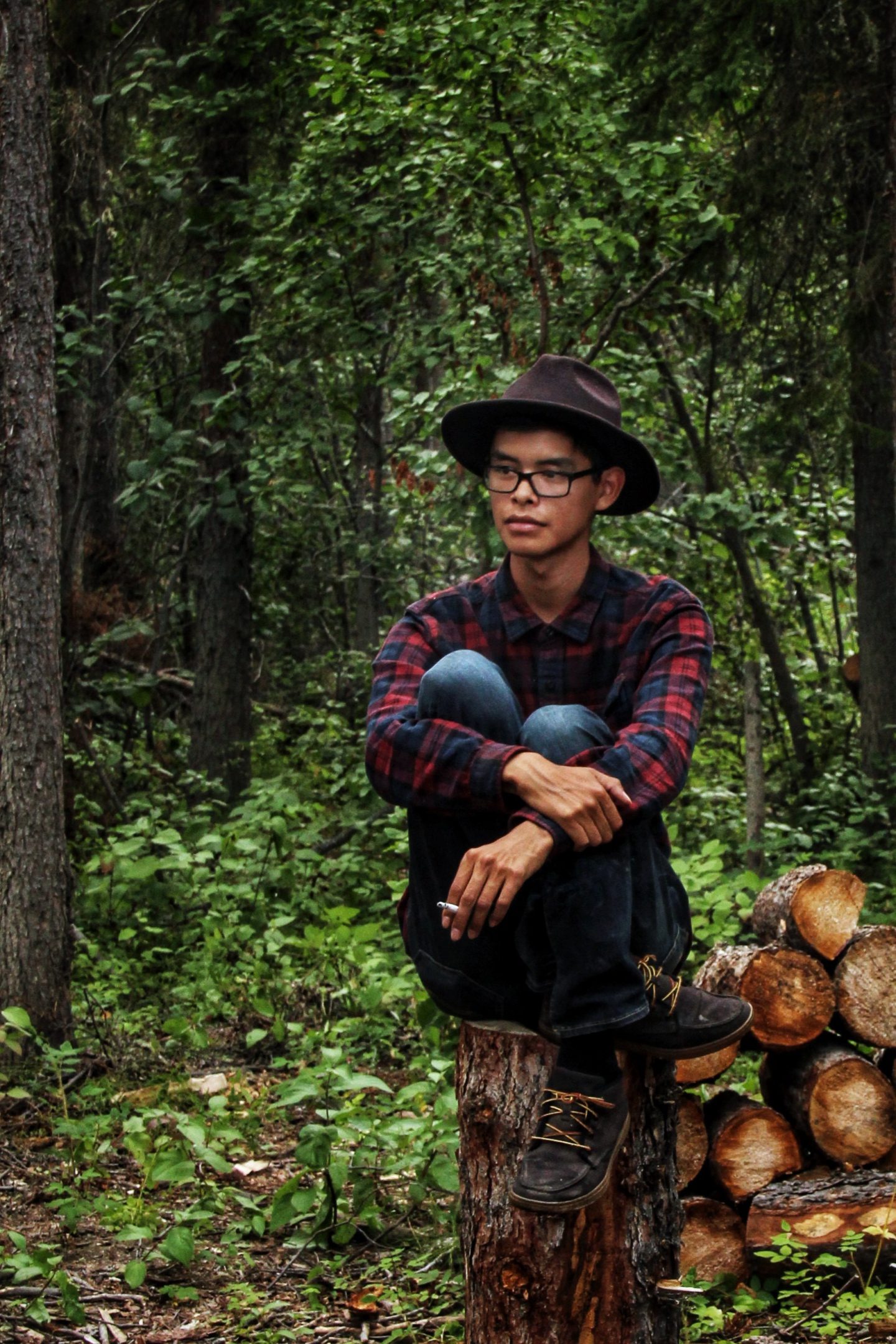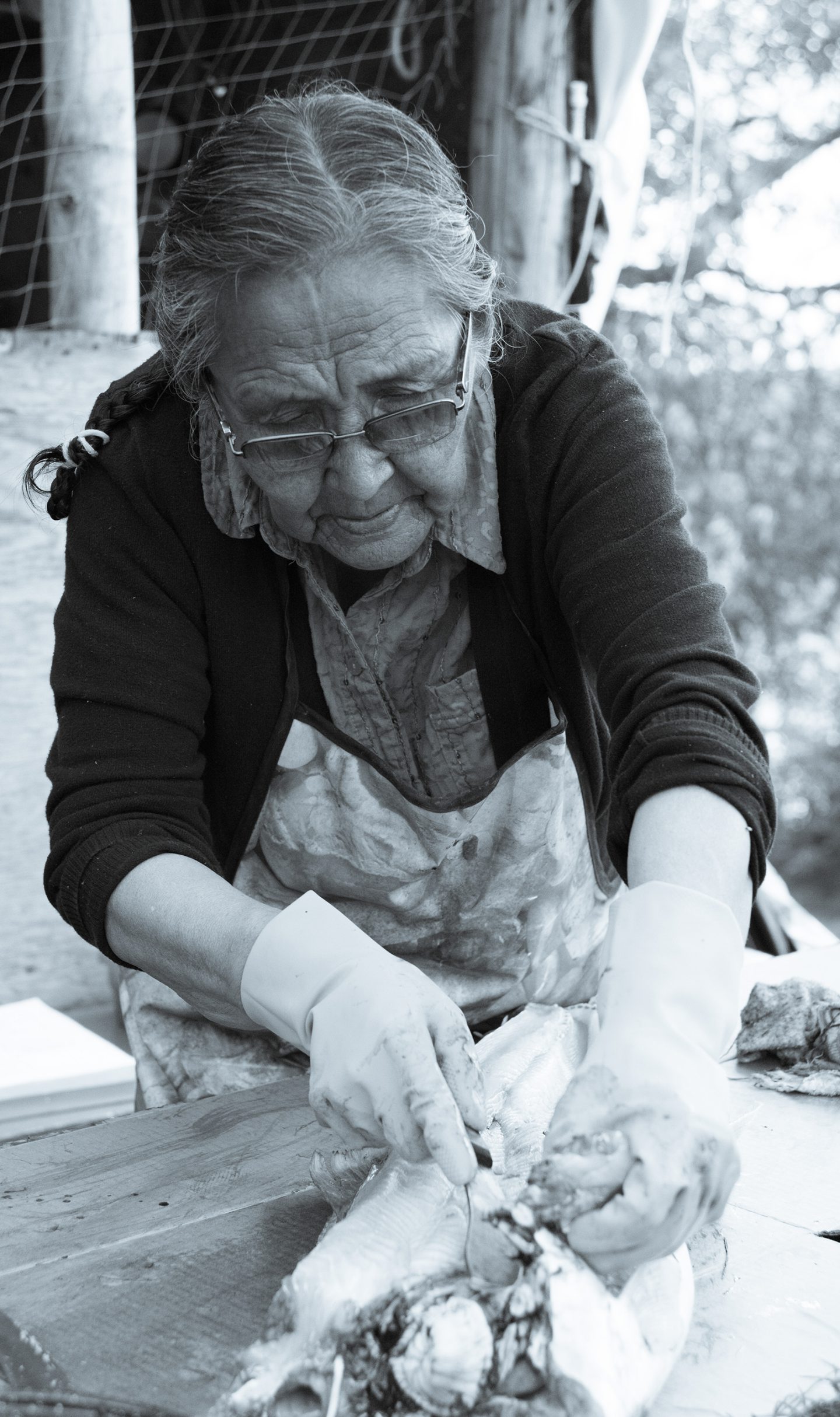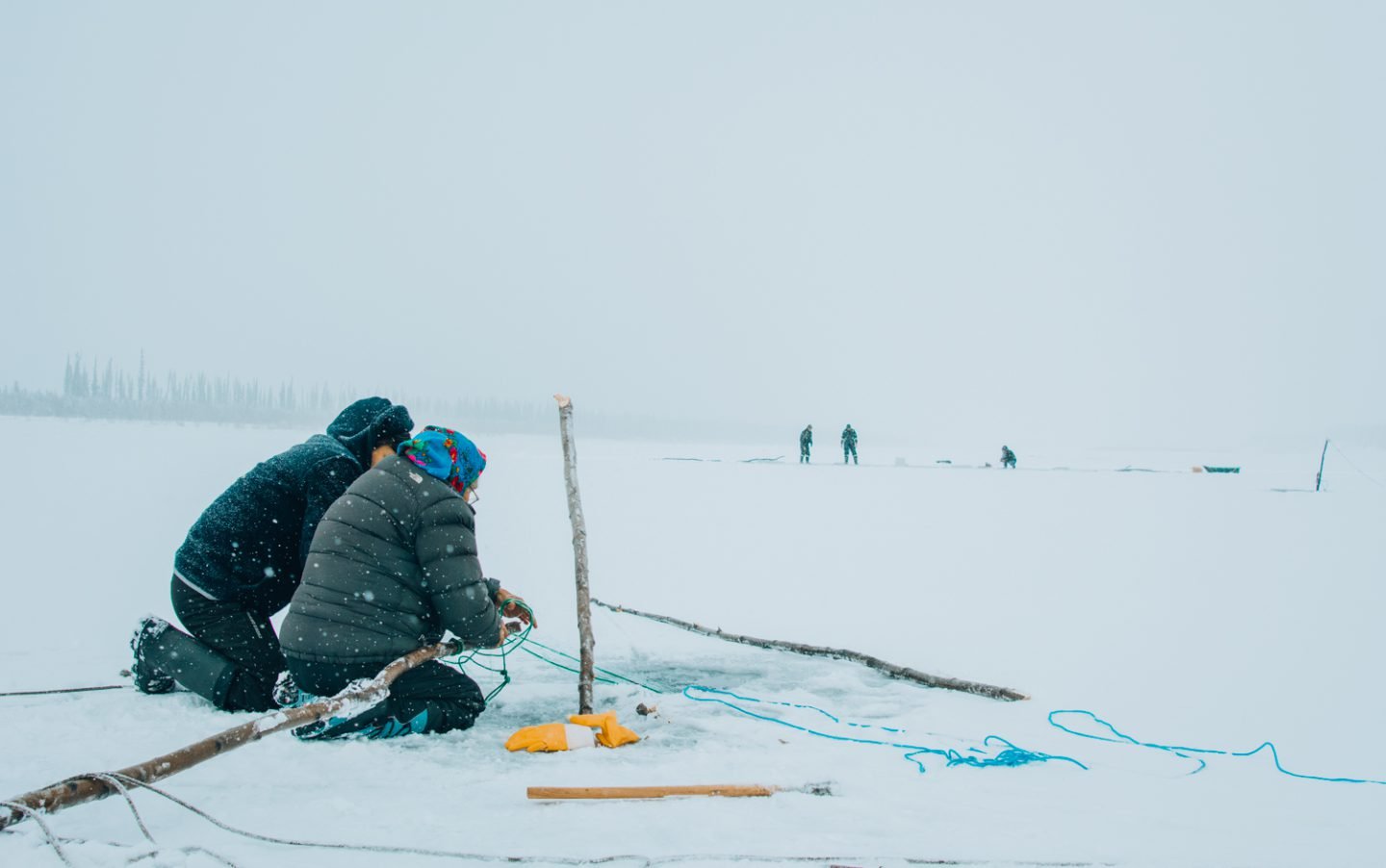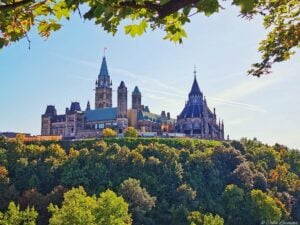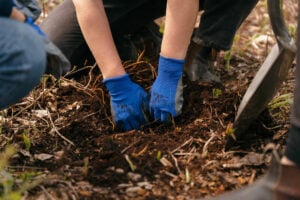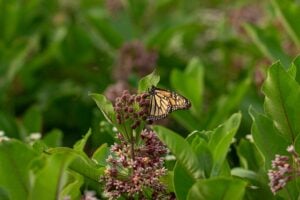Arlyn Charlie at Abe Stewart’s fish camp. (Photo: Jordan Stewart)
Arlyn
I sit here at my Jijuu’s fish camp and watch the landscape. I watch as the sun moves down to the horizon, watch as reds and purples reflect on the water, watch as the river flows past. I sit here, with a cup of tea and a cigarette in hand, and think. I think about the vast amount of history that this river holds. This river holds a story. My grandparents have travelled this river, navigating its twists and turns, its currents and sandbars, as their parents did before them. For thousands of years this place has been our home.
This beautiful land can be harsh. Looking back, I am amazed at how resilient my people were, including surviving the -40°C winters (which sometimes even dropped down to -60°C). They not only survived but thrived here, the place that the Teetl’it Gwich’in People call home.
I sit here and I wonder how much the land has changed. If my ancestors were here today, would they recognize this place? Would they notice the changes to the landscape? Would they notice the big landslide a few kilometres down the river, which was there at the time of my youth?
Life back then must have been so simple; simple, but not easy. They followed the traditional migratory patterns of animals throughout the year, out amidst the trees and mountains not knowing if they were going to be successful in a hunt. Yes, there are stories about the prosperous times, but that does not come without the stories of hardship. That was their life, their story.
Since I started my work capturing the Gwich’in culture, language, traditions, and practices by listening and through the lens of a camera, I discovered one word that sums it up: Gwandak. Gwandak is the Gwich’in word for story but it means more than that.
Gwandak holds more depth than the mere idea of a story that you might think of. Gwich’in stories were not preserved by pen and paper, but through oral tradition. Gwandak holds the depth of those stories. All the knowledge my ancestors had about the land, the history, and the teachings were passed down from generation to generation by telling stories. And those stories were not simply to pass the time. Gwandak were told to pass along teachings. Teachings which tell us about the land, thus granting us the necessary skills and knowledge to survive. This depth in gwandak allows me to know, capture and preserve this information for the future.
This gwandak is not something one can learn overnight. I have been coming up to my Jijuu’s fish camp since before I could remember. Year after year I have tried to make uutsik (dry-fish) from the whitefish, only to have the end product come with numerous holes, incapable of even hanging to dry. Year after year I practiced. Now, I look at my uutsik drying in the smoke house, with no holes and the proper thickness so that it won’t spoil. Now I know, like the process of making uutsik, patience is key — patience in the sense that we must keep trying in order to improve.

